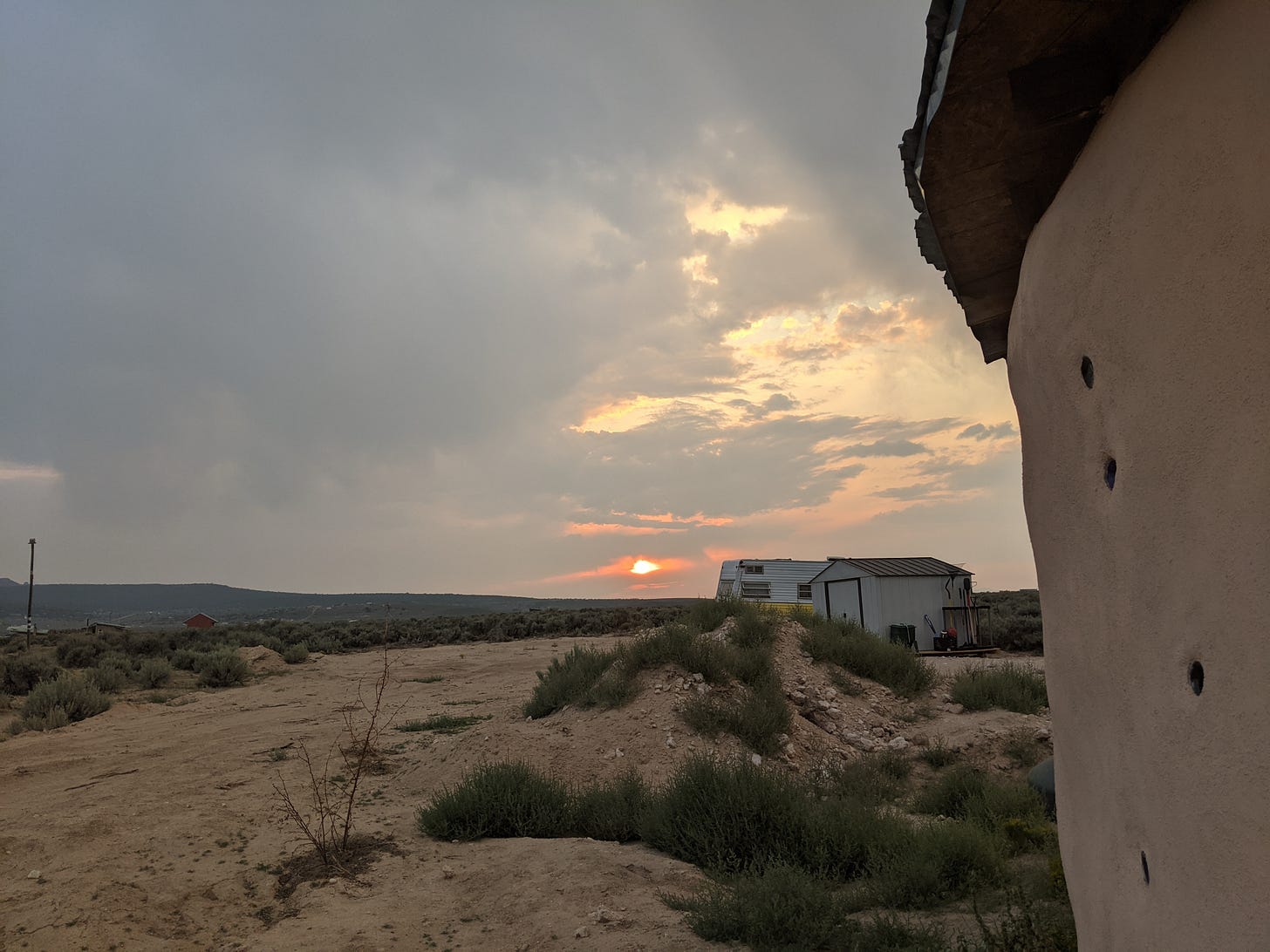The West is on Fire
Climate Change and Wildfires
(From September 2020)
Even though the wildfires are not relatively close to us, the smoke is thick. Colorado to the north and Santa fe to the south are burning. California has made national news with it's record fires. Here, the mountains are obscured. The sky is creamy white, dusty blue and muted gray. The air smells of a bonfire or the scent of winter when woodstoves are fired up and their chimney pipes emit swirls of piñon and juniper combustion.The winds pick up in the afternoon and carry the fumes toward us. Our lungs burn as we work around the homestead shoveling gravel and digging trenches.
Wildfires are sad. We drove through the remnants of one last week. I always feel a sense of grief for the loss of beauty, the loss of oxygen production, the loss of arbor life. But I know it is part of the natural cycle.
Often when we think of fire, we think of what we might lose--our homes, the lives of brave smokejumpers, public lands we enjoy hiking through or camping in. We forget that fire is an important part of the ecosystem, a way for forests to cull the abundant undergrowth. As humans, we center everything around our own selves and how it affects us, but if we take ourselves out of the picture and observe nature, we could better understand life. We know from observing the forest after a wildfire that something spectacular happens after everything is destroyed, beautiful vibrant flowers bloom. Fireweed, hollyhock, manzanita, fire poppy, snapdragon, lupine, phacelia and many other fire followers thrive off of the soil created when dead trees are returned to the earth. They use heat, smoke or charred soil as signals to sprout. Large pole pine has cones that require the heat of the fire to release their seeds and the fire creates favorable conditions for the seeds to germinate. Fires are crucial to forest renewal. They release valuable nutrients stored in the debris on the forest understory. They open the forest canopy to sunlight to stimulate growth.
Unfortunately, we are living in conditions where there are too many fires. Due to climate change, conditions are warmer and drier and drought has increased, creating increased wildfire risks. Also, 84% of wildfires are caused by negligent humans, which extends the normal fire season by three months. Humans start fires in conditions where nature normally doesn't--earlier in the season when forests are too wet to burn, at places and times when lightening isn't common, and closer to civilization.
People are building houses closer and closer to forested areas. This development steals valuable habitat from wildlife, and in the case of a wildfire, sends firefighters to risk their lives to protect more and more homes. We cut down trees to make room for our large second homes and pave roads to access them so that they can sit empty half the year, just so we have a place to stay when we go skiing in the winter or want to cool off in the summer.
As a species, we must determine what we are willing to sacrifice to the fire. At the rate we are going with the over-consumption of natural resources, we are destroying not only wildlife habitat, but our own human habitat. We are creating a world that will not be habitable for our grandchildren. Yes, the planet will recuperate, but the planet as we know it, the one that allows us to breathe and grow food and heal in nature and live in relative safety, will no longer exist. We will take every living being down with us. We are burning our planet to the ground for our own conveniences. When will we decide that enough is enough and put out the flames? How much do we have to destroy before we realize it is too much? Will watching your second home burn to the ground be enough to convince you? Because when it comes to our home planet, there is no second home.


